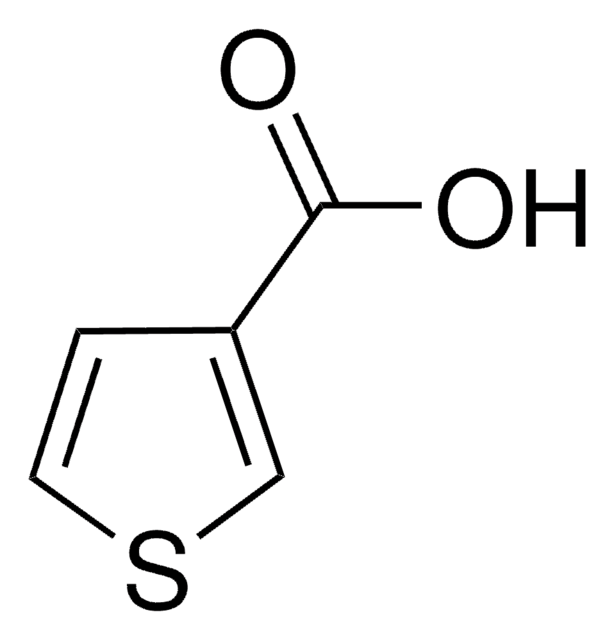687553
Hydroxymethyl EDOT
95%
Synonym(s):
(2,3-Dihydrothieno[3,4-b][1,4]dioxin-2-yl)methanol, EDT-methanol, Thieno[3,4-b]-1,4-dioxin-2-methanol
About This Item
Recommended Products
Assay
95%
form
solid
mp
42-46 °C
storage temp.
2-8°C
SMILES string
OCC1COc2cscc2O1
InChI
1S/C7H8O3S/c8-1-5-2-9-6-3-11-4-7(6)10-5/h3-5,8H,1-2H2
InChI key
YFCHAINVYLQVBG-UHFFFAOYSA-N
Related Categories
General description
Application
Storage Class Code
11 - Combustible Solids
WGK
WGK 3
Flash Point(F)
Not applicable
Flash Point(C)
Not applicable
Certificates of Analysis (COA)
Search for Certificates of Analysis (COA) by entering the products Lot/Batch Number. Lot and Batch Numbers can be found on a product’s label following the words ‘Lot’ or ‘Batch’.
Already Own This Product?
Find documentation for the products that you have recently purchased in the Document Library.
Customers Also Viewed
Articles
Conjugated polymers offer charge transport between inorganic, electrically conducting metals and organic, proton-conducting biological systems.
Our team of scientists has experience in all areas of research including Life Science, Material Science, Chemical Synthesis, Chromatography, Analytical and many others.
Contact Technical Service![2-Chloromethyl-2,3-dihydrothieno[3,4-b]-1,4-dioxine 95%](/deepweb/assets/sigmaaldrich/product/structures/422/187/4cc7b858-9e06-4ce2-8d39-d817b8313964/640/4cc7b858-9e06-4ce2-8d39-d817b8313964.png)

![2,3-Dihydrothieno[3,4-b][1,4]dioxine-5-carboxylic acid AldrichCPR](/deepweb/assets/sigmaaldrich/product/structures/145/904/fa7794c7-33ba-4c32-99c7-e9a63b506736/640/fa7794c7-33ba-4c32-99c7-e9a63b506736.png)









